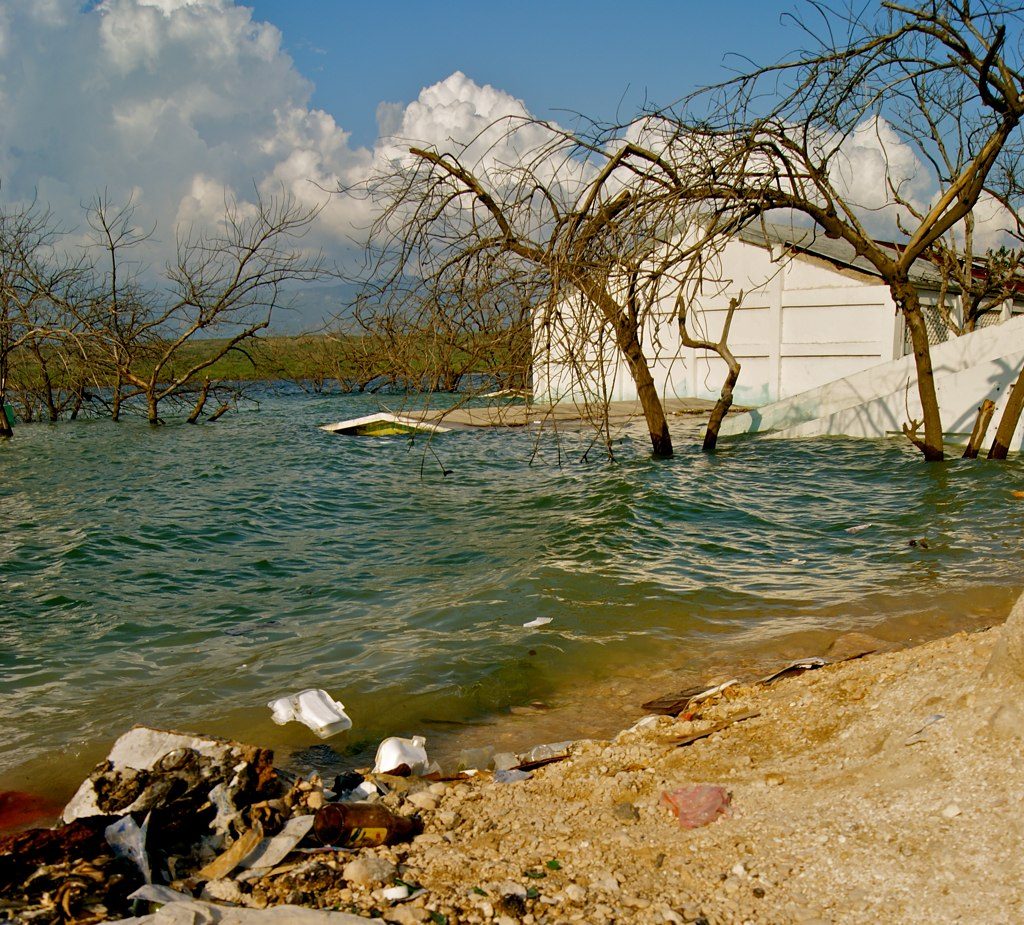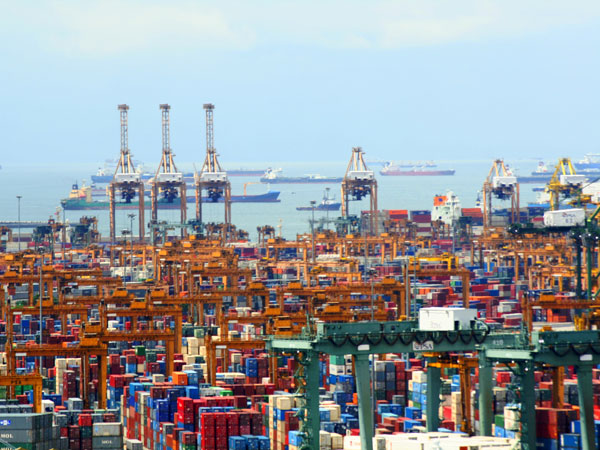Globalization has many negative impacts on the environment. Corporations that benefit from globalization most must work toward sustainability.
Broadly speaking, globalization refers to the increased interdependence of nations and the way people from different cultures and geographic locations can receive goods or communicate with each other thanks to free trade and information technology, among other things. But it’s a much more complex phenomenon than that, and it’s necessary to have an all-encompassing understanding of what it entails. Here, we’ll examine how globalization affects the environment in both positive and negative ways, and what changes could be made to ease its adverse effects in a post-globalization world.
Globalization causes environmental changes that affect health
In his in-depth academic article, Anthony J. McMichael from the National Centre for Epidemiology and Population Health at the Australian National University asserts that the effects of globalization are not separate, encapsulated events, but multifaceted phenomena that have a domino-like effect on the environment. He discusses how climate change will make it exceptionally difficult to grow crops, contributing to food scarcity crises, and he predicts that globalization will be partially to blame for the introduction of new diseases to particular regions. Yet another consequence that McMichael considers but that doesn’t often appear in other discussions about globalization effects is the changes in ocean waters and how they cause lower protein content in fish.

Although cons of globalization are numerous, there are some positives too. For example, milder winters could reduce the death rate from health issues like a stroke. It may also become more difficult for mosquitoes to survive as the weather becomes hotter and drier due to climate change, which could lead to a decline in fatalities resulting from mosquito-borne illnesses like malaria.
According to McMichael, globalization has already caused health-related changes, and still more changes will occur at an especially rapid rate if numerous parties don’t intervene promptly. More specifically, the health sector must collaborate with other industries and figure out how to alter the ways in which humans produce and share things and engage in activities that comprise their existence while keeping climate change and its effects in mind.
American professor and Haitian business leader team up for a common goal
One positive effect of globalization as it relates to the environment is that it facilitates coming together of people from different backgrounds to tackle environmental issues. Professor Stephen Blair Hedges, director of the Center for Biodiversity at Temple University, and Philippe Bayard, CEO of Sunrise Airways and president of Société Audubon Haiti, a leading conservation group, worked together to establish Haiti’s first private nature reserve. The protected areas of the reserve act as havens for species most at risk of extinction, a particularly dire threat given the connection made between forest cover and biodiversity, and the fact that—as Hedges points out—Haiti is one of the most deforested countries in the world. The problem at hand is severe, but the project shared by Hedges and Bayard illustrates how globalization helps people defy geographic boundaries and pool their knowledge.

Hedges has also co-authored research whose one of the primary goals is to improve forest cover reporting data and connect the findings to biodiversity. According to Hedges, the current method used by the United Nations to monitor the world’s forests is not sufficiently detailed. However, the efforts to preserve Haiti’s disappearing species could lead to positive changes at the governmental level and yield similar collaborations between experts.
Sustainability as part of corporate and national strategies
Although individuals can take personal measures to support environmental sustainability, Ravi Fernando, operations director of the Malaysia Blue Oceans Strategy Institute, argues that helping the planet thrive should be part of the corporate and national strategies devised by people in leadership roles, because they are the ones who have the power and resources necessary to spur positive developments.
In his paper “Sustainable Globalization and Implications for Strategic Corporate and National Sustainability,” Fernando points out how climate and poverty are “the two all-pervading global sustainability challenges.” And even if leaders think about these challenges, it’s typically only with a short-term mind-set. But when visionary leaders work together with consumers who keep abreast of relevant developments and maintain real-world perceptions, changes do happen. National policies are a good starting point, but only when supplemented with sustainable business practices and the support of consumers willing to do things differently than before in favor of sustainability.

Fernando also talks about what tremendous influencers the most powerful nations and businesses are. As such, they have a substantial responsibility and must remember that when they take action to either help or harm the environment, the world watches, and some people will respond in kind. Whether independently or in collaboration with others, corporations and governments can combine knowledge and other resources to make gains that will benefit the planet.
As for individual efforts, people could help by reacting favorably when companies and governments make choices that are advantageous to the environment. They could also voice their disapproval of any proposed legislation that could potentially harm the environment. And on a personal level, they could start changing their ways, for example by purchasing goods from more sustainable companies. Because every effort is worth it.
Related: Humans Have Varied Biological Impact on Animals
Featured Image: A cheeky depiction of globalization by Esther Dyson, via Flickr.
—Megan Ray Nichols is a science writer and editor of her blog, Schooled by Science. She has a passion for learning and is curious in nature. Her favorite topics to explore include astronomy, the environment, and technology. Keep up with Megan by following her on Twitter and LinkedIn.
References
Haiti’s first-ever private nature reserve created to protect imperiled species. (2019). Temple University.
Hedges, S. B., Cohen, W. B., Timyan, J., & Yang, Z. (2018). Haiti’s Biodiversity Threatened by Nearly Complete Loss of Primary Forest. Proceedings of the National Academy of Sciences of the United States of America, 115 (46), 11850-11855. DOI:10.1073/pnas.1809753115. Abstract retrieved from https://www.pnas.org/content/115/46/11850.
McMichael, A. J. (2013). Globalization, Climate Change, and Human Health. The New England Journal of Medicine, (368)1335-1343. DOI:10.1056/NEJMra1109341.
Ravi Fernando, (2012), “Sustainable globalization and implications for strategic corporate and national sustainability”, Corporate Governance, Vol. 12 Iss: 4 pp. 579 – 589.




